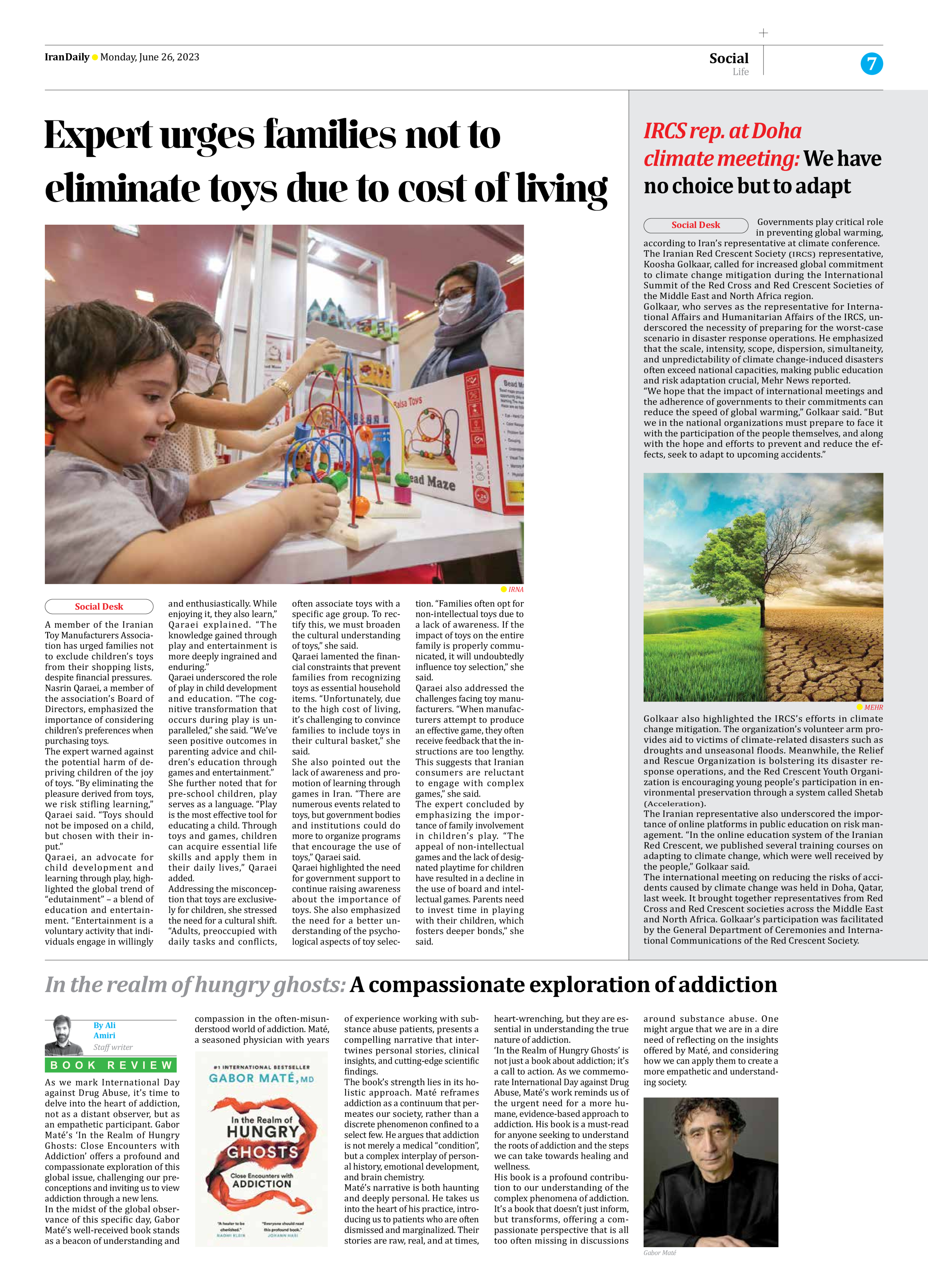
Expert urges families not to eliminate toys due to cost of living
A member of the Iranian Toy Manufacturers Association has urged families not to exclude children’s toys from their shopping lists, despite financial pressures.
Nasrin Qaraei, a member of the association’s Board of Directors, emphasized the importance of considering children’s preferences when purchasing toys.
The expert warned against the potential harm of depriving children of the joy of toys. “By eliminating the pleasure derived from toys, we risk stifling learning,” Qaraei said. “Toys should not be imposed on a child, but chosen with their input.”
Qaraei, an advocate for child development and learning through play, highlighted the global trend of “edutainment” – a blend of education and entertainment. “Entertainment is a voluntary activity that individuals engage in willingly and enthusiastically. While enjoying it, they also learn,” Qaraei explained. “The knowledge gained through play and entertainment is more deeply ingrained and enduring.”
Qaraei underscored the role of play in child development and education. “The cognitive transformation that occurs during play is unparalleled,” she said. “We’ve seen positive outcomes in parenting advice and children’s education through games and entertainment.”
She further noted that for pre-school children, play serves as a language. “Play is the most effective tool for educating a child. Through toys and games, children can acquire essential life skills and apply them in their daily lives,” Qaraei added.
Addressing the misconception that toys are exclusively for children, she stressed the need for a cultural shift. “Adults, preoccupied with daily tasks and conflicts, often associate toys with a specific age group. To rectify this, we must broaden the cultural understanding of toys,” she said.
Qaraei lamented the financial constraints that prevent families from recognizing toys as essential household items. “Unfortunately, due to the high cost of living, it’s challenging to convince families to include toys in their cultural basket,” she said.
She also pointed out the lack of awareness and promotion of learning through games in Iran. “There are numerous events related to toys, but government bodies and institutions could do more to organize programs that encourage the use of toys,” Qaraei said.
Qaraei highlighted the need for government support to continue raising awareness about the importance of toys. She also emphasized the need for a better understanding of the psychological aspects of toy selection. “Families often opt for non-intellectual toys due to a lack of awareness. If the impact of toys on the entire family is properly communicated, it will undoubtedly influence toy selection,” she said.
Qaraei also addressed the challenges facing toy manufacturers. “When manufacturers attempt to produce an effective game, they often receive feedback that the instructions are too lengthy. This suggests that Iranian consumers are reluctant to engage with complex games,” she said.
The expert concluded by emphasizing the importance of family involvement in children’s play. “The appeal of non-intellectual games and the lack of designated playtime for children have resulted in a decline in the use of board and intellectual games. Parents need to invest time in playing with their children, which fosters deeper bonds,” she said.







